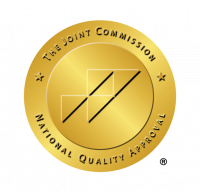Home » Alcohol » Alcohol and Your Health » Diseases Caused by Alcohol » Alcohol and Heart Disease
Alcohol and Heart Disease
Does alcohol help or hurt your heart?
Ready for a change in your relationship with alcohol? Get comprehensive support, 100% online.
Heart disease is the leading cause of death in the United States—about one person dies from it every 34 seconds.1 There is a good amount of contradictory information circulating about whether alcohol helps protect against heart disease, or makes things worse.
Perhaps you’ve heard that moderate drinking is good for your heart—but you’ve also heard that drinking increases your risk for stroke. So, is it better overall for the health of your heart to drink—or not?
The answer is complicated, but the heart-healthy benefits of alcohol seem to be somewhat exaggerated. More studies are needed, and it seems that many of the upsides of drinking might be explained by other factors. And one thing seems clear: Excessive drinking, as with the rest of your body, can do a lot of damage to your heart.
Table of Contents
Does Alcohol Benefit Your Heart?
There’s a popular claim that alcohol—particularly red wine—can benefit your heart. Some studies suggest that moderate alcohol consumption can increase levels of “good” cholesterol in the body (HDL) and reduce the risk of heart disease.2 (Moderate drinking is defined as two or fewer drinks a day for men, and one or fewer for women.) Wine also contains antioxidants like resveratrol, which research suggests may boost heart health.3
However, these benefits are often exaggerated in the media. In truth, there is not enough evidence to prove whether wine is good for your heart. The concentration of resveratrol in red wine is relatively small. And when it comes to the Mediterranean diet, there are many other factors that could influence improved heart health. For example, people who drink in moderation might also be more likely to exercise and eat a nutritious diet.
And the potential benefits of alcohol certainly don’t outweigh the confirmed risks. A 2016 study in The Lancet found that alcohol was a factor in 10% of global deaths among people aged 15-49. The researchers concluded, “The safest level of drinking is none.”4
In summary, doctors and organizations like The American Heart Association do not recommend drinking alcohol to gain potential health benefits.5 We can gain the same benefits (without the risks) by eating healthy foods and exercising. Grapes, blueberries, and some fruit juices have the same antioxidants found in wine.

How Does Alcohol Affect the Heart?
While there is talk of minor heart benefits from moderate drinking, we know for sure that heavy drinking carries significant risks. Here’s a quick overview of some of the major heart-related illnesses impacted by alcohol:
Atrial Fibrillation
Excess alcohol consumption, and particularly binge drinking, is linked to atrial fibrillation—a type of heart arrhythmia which can have serious consequences. Symptoms can include heart palpitations, extreme fatigue, light-headedness, and chest pain.6 This condition is part of the phenomenon known as “holiday heart syndrome,” which often occurs in December due to increased alcohol consumption during that time.
Atrial fibrillation is the primary cause of more than 450,000 hospitalizations per year in the US. It can also lead to the formation of blood clots, causing a stroke. The good news is that atrial fibrillation can resolve itself once you stop drinking. However, recent studies suggest that even one glass of wine can significantly increase your risk of developing this condition.7
Cardiomyopathy
Cardiomyopathy is a disorder that impacts the heart muscle’s ability to pump blood. This can result in irregular heartbeats, or even lead to cardiac arrest or heart failure.8 This condition can be inherited or age-related, but it can also be caused by other heart conditions, infections, high levels of stress, and alcohol abuse.9
Alcoholic cardiomyopathy is more likely to occur among frequent binge drinkers or people who have drank heavily for at least 5 years.10 While it is not a guaranteed consequence of excessive alcohol use, some estimates have it occurring in five to 10 percent of people addicted to alcohol.11
High Blood Pressure
Chronic high blood pressure, or hypertension, can damage the heart and lead to serious health problems if it persists over time. While it is possible that light drinking might lower one’s blood pressure, heavy alcohol use is known to contribute to hypertension.
There are several possible reasons for this, including alcohol’s impacts on your baroreceptors, renin system, and stress response.12 Limiting alcohol consumption is recommended for those seeking to lower their blood pressure.13
Read More: Alcohol and High Blood Pressure
Coronary Heart Disease
Coronary heart disease (CHD), also known as coronary artery disease, is the leading cause of death in the United States. It occurs when the arteries can’t deliver enough oxygen-rich blood to the heart, which can lead to chest pain, heart attack, or sudden cardiac arrest.14
There is evidence to suggest that moderate drinking actually can lower the risk of CHD. 15 However, it is not recommended to start drinking if you don’t already, due to all of the other drawbacks. For example, as mentioned above, heavy drinking contributes to high blood pressure, which is a significant risk factor for developing CHD.
Alcohol and Heart Attack Risk
Consumption of alcohol, especially binge drinking, is linked with higher risk of heart attack. According to a Harvard study, people who binge drink are 72% more likely to have a heart attack than people who don’t.16
Risk factors for heart attack include high blood pressure, stress, and obesity, all of which can be caused or worsened by heavy alcohol consumption.17 Alcohol itself increases the risk of heart attack because it can produce irregular heartbeats and cause cardiomyopathy. It is also a factor in high triglyceride levels, which are linked to high blood cholesterol, another risk factor for heart attack.
With these combined risk factors, the possibility of a heart attack significantly increases for people who drink excessively.
Alcohol and Stroke
Stroke is one of the leading causes of death in the United States.18 Ischemic strokes occur when blood flow is blocked through the artery that supplies blood to the brain.19 Hemorrhagic strokes are the result of an artery in the brain rupturing or leaking blood, putting too much pressure on brain cells.20
Risk factors for stroke include heart disease, high blood pressure, high blood cholesterol, and obesity. Again, consumption of alcohol can cause or worsen all of these factors. On its own, excessive alcohol use is another risk factor for stroke.21 Recent research suggests that even one drink a day can increase stroke risk by 10-15 percent.22
Alcohol and Heart Disease: The Takeaway
In moderation, alcohol seems to have both positive and negative impacts on heart health. However, more research is needed to show whether the supposed health benefits of light drinking are really linked to alcohol.
In the meantime, heavy drinking clearly has a negative impact on your health. Excessive alcohol use can contribute to high blood pressure, cause arrhythmias, and damage the muscles of the heart. Heavy alcohol consumption also increases the risk of stroke and heart attack.
Therefore, if you’re concerned about your heart health, and don’t already drink, there’s no reason to start now. And if you struggle with your alcohol use, improved heart health is one likely benefit of making a change.
References[+]
| 1↥ | https://www.cdc.gov/heartdisease/facts.htm |
|---|---|
| 2↥ | https://www.ncbi.nlm.nih.gov/pmc/articles/PMC7230699/ |
| 3↥ | https://pubmed.ncbi.nlm.nih.gov/27144581/ |
| 4↥ | https://www.thelancet.com/journals/lancet/article/PIIS0140-6736(18)31310-2/fulltext |
| 5↥ | https://www.heart.org/en/healthy-living/healthy-eating/eat-smart/nutrition-basics/alcohol-and-heart-health |
| 6↥ | https://www.cdc.gov/heartdisease/atrial_fibrillation.htm |
| 7↥ | https://www.ucsf.edu/news/2021/08/421341/alcohol-can-cause-immediate-risk-atrial-fibrillation |
| 8↥ | https://www.nhlbi.nih.gov/health/cardiomyopathy |
| 9↥ | https://www.nhlbi.nih.gov/health/cardiomyopathy/causes |
| 10↥ | https://my.clevelandclinic.org/health/diseases/21994-alcoholic-cardiomyopathy |
| 11↥ | https://www.sciencedirect.com/topics/medicine-and-dentistry/alcoholic-cardiomyopathy |
| 12↥ | https://www.ncbi.nlm.nih.gov/pmc/articles/PMC4038773/ |
| 13↥ | https://pubmed.ncbi.nlm.nih.gov/31756356/ |
| 14↥ | https://www.nhlbi.nih.gov/health/coronary-heart-disease |
| 15↥ | https://arcr.niaaa.nih.gov/volume/38/2/alcohols-effects-cardiovascular-system |
| 16↥ | https://www.hsph.harvard.edu/news/hsph-in-the-news/binge-drinking-linked-with-higher-heart-attack-risk/ |
| 17↥ | https://www.heart.org/en/health-topics/heart-attack/understand-your-risks-to-prevent-a-heart-attack |
| 18↥ | https://www.cdc.gov/stroke/facts.htm |
| 19↥ | https://www.stroke.org/en/about-stroke/types-of-stroke/ischemic-stroke-clots |
| 20↥ | https://www.stroke.org/en/about-stroke/types-of-stroke/hemorrhagic-strokes-bleeds |
| 21↥ | https://www.hopkinsmedicine.org/health/conditions-and-diseases/stroke/risk-factors-for-stroke |
| 22↥ | https://www.bbc.com/news/health-47817650 |

